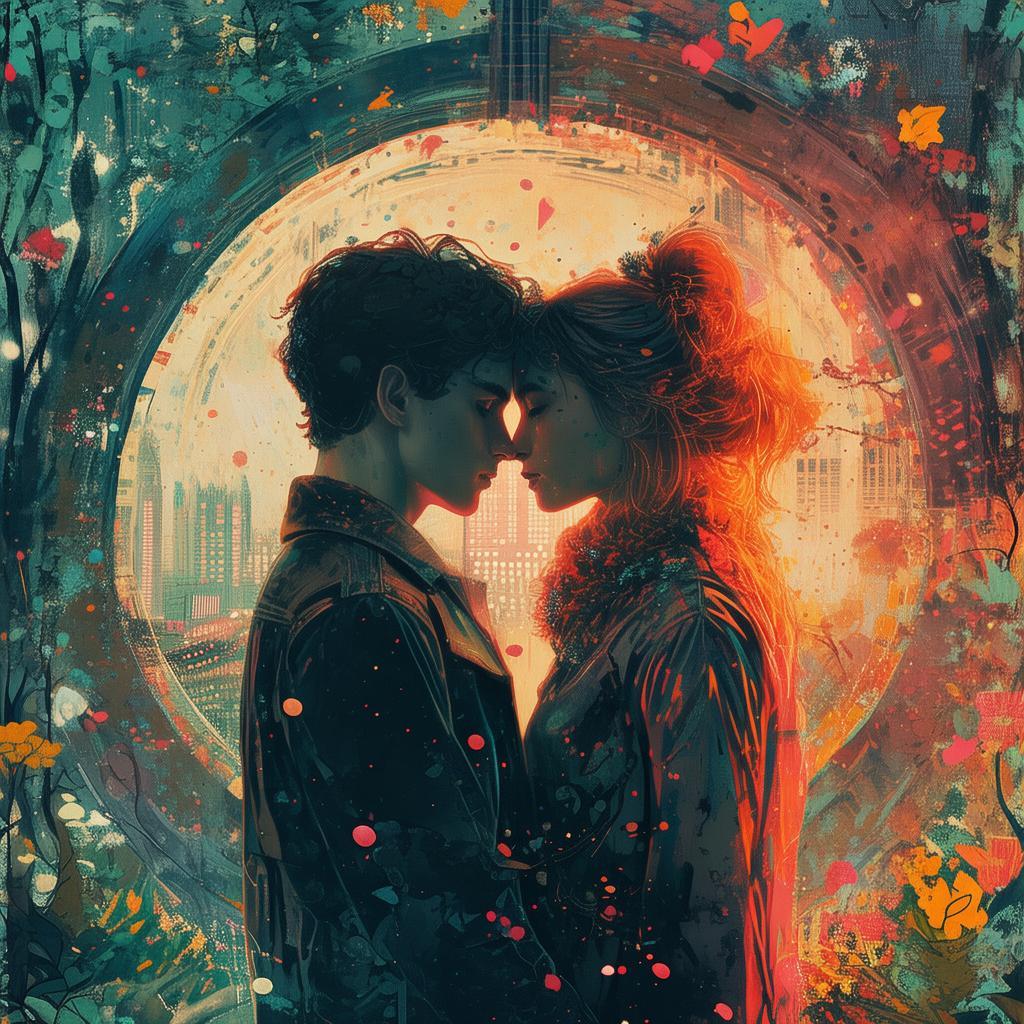The Melody of Deception: A Victorian Era Love Letter Mystery
In the heart of London during the late 1800s, the air was thick with the scent of roses and the sound of violins. The city was abuzz with the news of a new composition that had taken the musical world by storm. The composer, a reclusive figure known only by the pseudonym "The Phantom," had written a symphony that captured the hearts of all who heard it. The music was unlike anything the public had ever experienced, filled with passion and longing, as if it were a love letter written in notes and melodies.
Amidst the fervor, a young violinist named Eliza found herself drawn to the music. Her life was one of constant performance, but she felt an inexplicable connection to the symphony. It was as if it were speaking to her, telling a story she was meant to uncover. One evening, as she was practicing in her dimly lit room, a mysterious letter arrived, addressed to her.
The letter was written in an elegant hand and contained a single phrase: "The love of your life is in danger." Eliza's heart raced as she read the words. She knew the letter was meant for her, but she had no idea why. Who could know of her life and be so concerned for her safety?

Determined to find out the truth, Eliza began to investigate. She visited the composer, who lived in a grand estate on the outskirts of London. The composer, a man of great repute but few friends, was intrigued by Eliza's passion for his music and agreed to help her. Together, they pieced together a puzzle that led them to the mysterious benefactor of the symphony.
The benefactor, a wealthy and influential man named Lord Harrow, had been instrumental in promoting "The Phantom's" music. He was also known for his philanthropy and his secret love for music. As Eliza and the composer delved deeper, they discovered that Lord Harrow had a personal connection to the symphony and to Eliza herself.
It turned out that Lord Harrow had been Eliza's childhood guardian. When she was a young girl, he had taken her under his wing and introduced her to the world of music. He had loved her deeply, but his love had been forbidden by society. As she grew older, he had sent her away to pursue her dreams, hoping that one day they could be together.
The composer, who was actually Eliza's long-lost brother, had been searching for her all these years. When he had heard the symphony, he knew it was her work. He had written it as a love letter, a way to reach out to her and express his love and concern.
As the truth unraveled, Eliza found herself torn between her love for the composer and her loyalty to Lord Harrow. She had to decide whether to follow her heart or her duty. The composer, understanding the gravity of her situation, offered to help her in any way he could.
The climax of their investigation led them to a secret room in Lord Harrow's estate, where they discovered a collection of letters and a hidden diary. The diary belonged to Lord Harrow and contained his love letters to Eliza. It was a revelation that shook Eliza to her core. She realized that Lord Harrow had loved her for so long, and she had never known.
With the composer's help, Eliza confronted Lord Harrow. He confessed his love and explained his actions. He had wanted to protect her from the world's judgment and had believed that his love was too great to be expressed openly. The composer, who had been listening outside the room, stepped forward and revealed his own identity to Lord Harrow.
The confrontation was tense, but ultimately, it led to a reconciliation. Lord Harrow and Eliza acknowledged their love for each other, and the composer found peace in knowing that his sister was happy. The symphony, which had been a love letter to Eliza, now became a symbol of the love between all three of them.
In the end, Eliza realized that true love was not about the world's approval but about the connections we make and the sacrifices we are willing to make for those we care about. The Melody of Deception was not just a symphony; it was a love story that transcended time and society's expectations.
The story of Eliza, the composer, and Lord Harrow became legendary in the musical world of the Victorian Era. Their love, once hidden and forbidden, was now celebrated as a testament to the power of music and the enduring nature of love.
✨ Original Statement ✨
All articles published on this website (including but not limited to text, images, videos, and other content) are original or authorized for reposting and are protected by relevant laws. Without the explicit written permission of this website, no individual or organization may copy, modify, repost, or use the content for commercial purposes.
If you need to quote or cooperate, please contact this site for authorization. We reserve the right to pursue legal responsibility for any unauthorized use.
Hereby declared.









